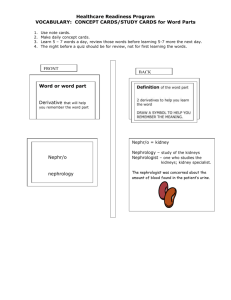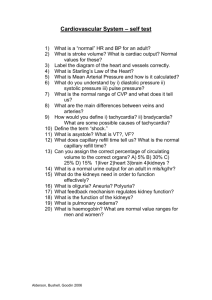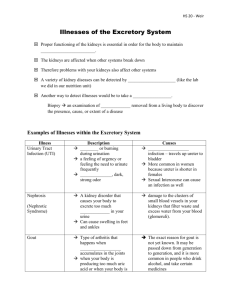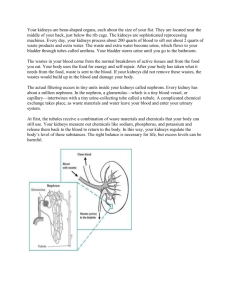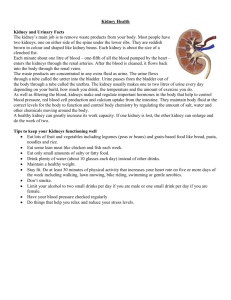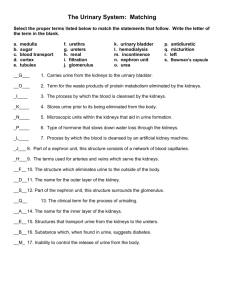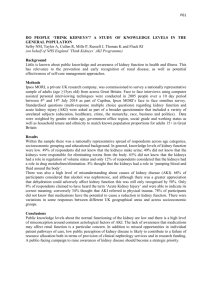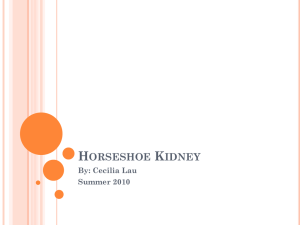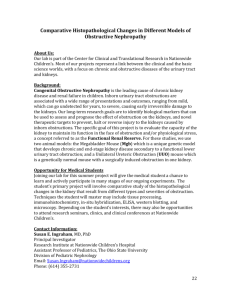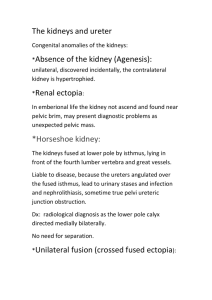Looking after your kidneys - Pharmaceutical Society of Australia
advertisement
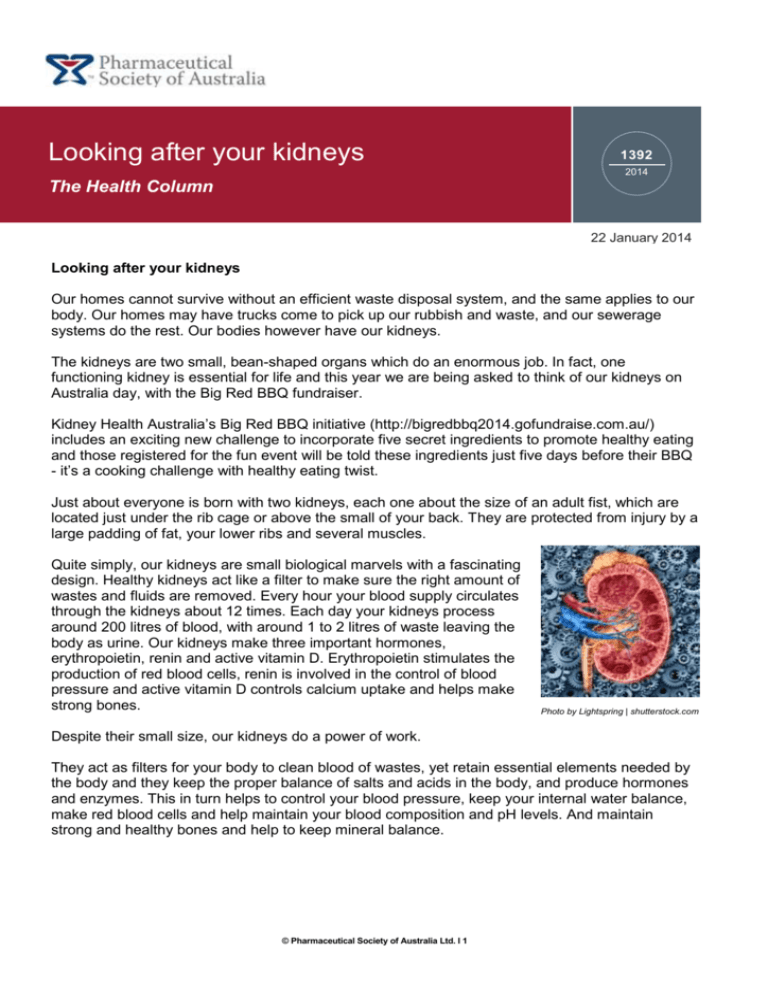
Looking after your kidneys 1392 2014 The Health Column 22 January 2014 Looking after your kidneys Our homes cannot survive without an efficient waste disposal system, and the same applies to our body. Our homes may have trucks come to pick up our rubbish and waste, and our sewerage systems do the rest. Our bodies however have our kidneys. The kidneys are two small, bean-shaped organs which do an enormous job. In fact, one functioning kidney is essential for life and this year we are being asked to think of our kidneys on Australia day, with the Big Red BBQ fundraiser. Kidney Health Australia’s Big Red BBQ initiative (http://bigredbbq2014.gofundraise.com.au/) includes an exciting new challenge to incorporate five secret ingredients to promote healthy eating and those registered for the fun event will be told these ingredients just five days before their BBQ - it’s a cooking challenge with healthy eating twist. Just about everyone is born with two kidneys, each one about the size of an adult fist, which are located just under the rib cage or above the small of your back. They are protected from injury by a large padding of fat, your lower ribs and several muscles. Quite simply, our kidneys are small biological marvels with a fascinating design. Healthy kidneys act like a filter to make sure the right amount of wastes and fluids are removed. Every hour your blood supply circulates through the kidneys about 12 times. Each day your kidneys process around 200 litres of blood, with around 1 to 2 litres of waste leaving the body as urine. Our kidneys make three important hormones, erythropoietin, renin and active vitamin D. Erythropoietin stimulates the production of red blood cells, renin is involved in the control of blood pressure and active vitamin D controls calcium uptake and helps make strong bones. Photo by Lightspring | shutterstock.com Despite their small size, our kidneys do a power of work. They act as filters for your body to clean blood of wastes, yet retain essential elements needed by the body and they keep the proper balance of salts and acids in the body, and produce hormones and enzymes. This in turn helps to control your blood pressure, keep your internal water balance, make red blood cells and help maintain your blood composition and pH levels. And maintain strong and healthy bones and help to keep mineral balance. © Pharmaceutical Society of Australia Ltd. I 1 Your kidneys are master chemists of the body, intervene in many processes and balances in the body and control many vital body functions. The major role of the kidneys is to remove waste from the blood and eliminate it in the urine. To remove this waste and extra water, blood enters the kidney through the renal artery; blood is then cleaned in the kidney as it passes through tiny filters called nephrons. The nephrons are the basic working units of the kidneys, controlling the formation of urine. One kidney contains about one million nephrons, and each nephron contains a filtering apparatus called a glomerulus. But things can and do go wrong with this very complicated system. Sometimes kidney failure can happen quickly, caused for example by a sudden loss of large amounts of blood or an accident. A sudden drop in kidney function is called Acute Kidney Failure and is often short lived, but can occasionally leads to lasting kidney damage. More often kidney function worsens over a number of years. This is actually good news, because if kidney disease is found early, medication, dietary and lifestyle changes can increase the life of your kidneys and keep you feeling your best for as long as possible. Kidney disease progression can also be slowed with medicines which help to protect your kidneys. Your GP can prescribe these medicines for you, which are available through your local pharmacist. Your local community pharmacy is your health destination and your Self Care pharmacist can give you more information about issues affecting your kidneys such as bladder and urine control and urinary tract infection. For the nearest location phone the Pharmaceutical Society on 1300 369 772 or check the website www.psa.org.au and click on Self Care Pharmacy Finder. © Pharmaceutical Society of Australia Ltd. I 2
